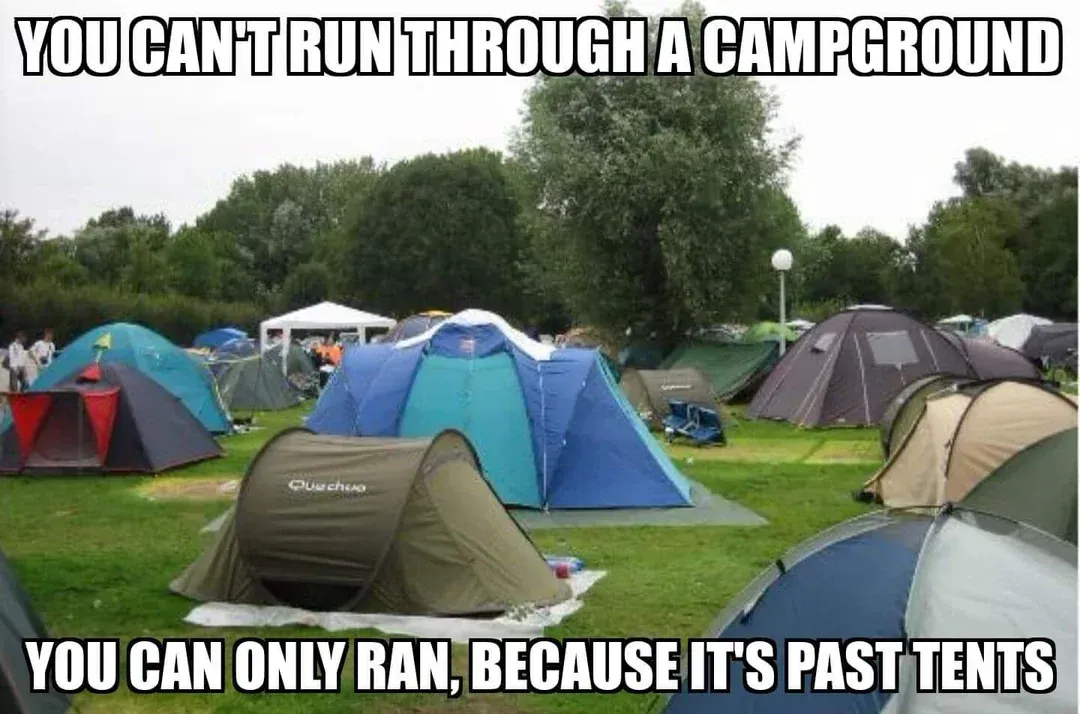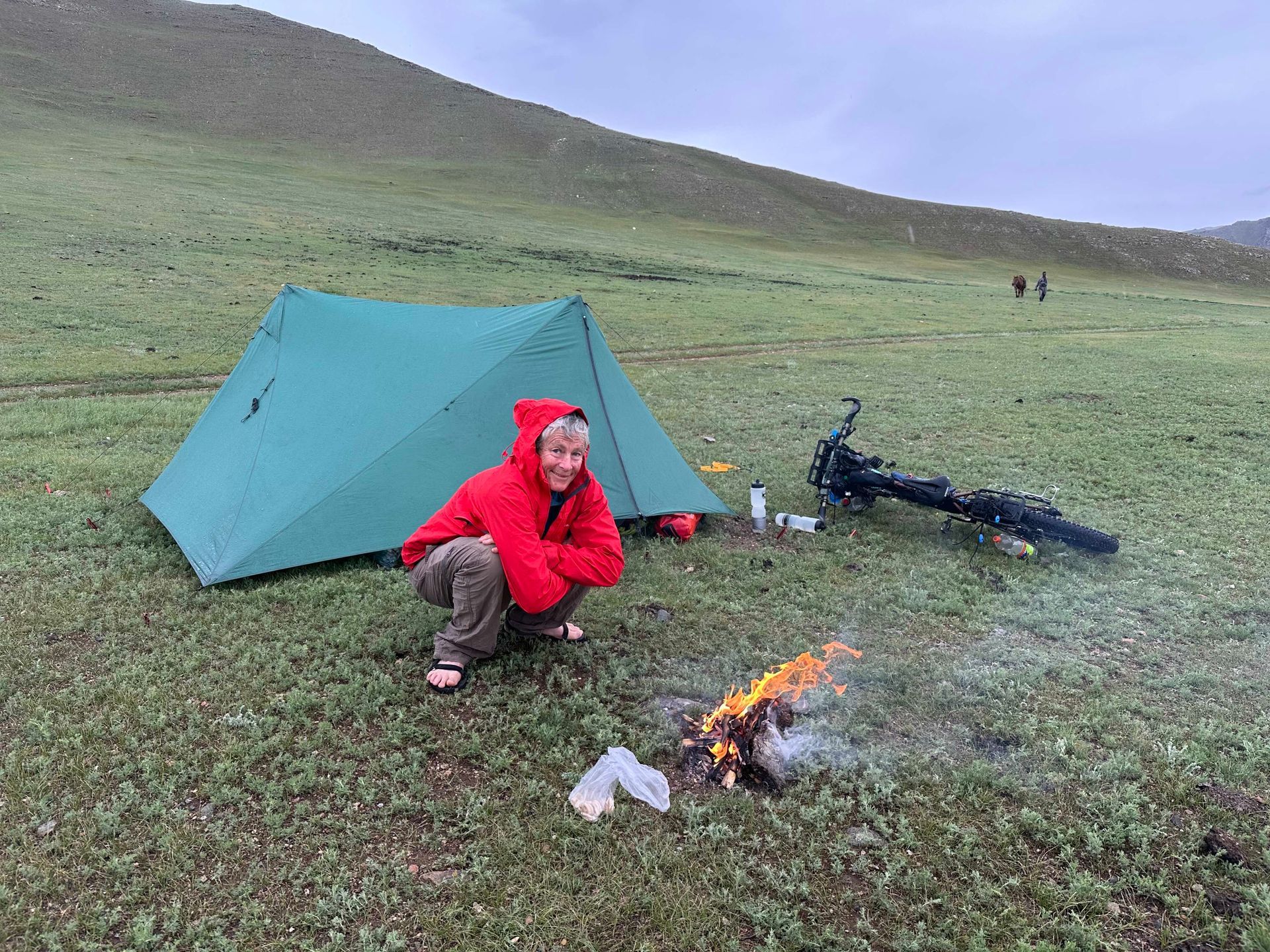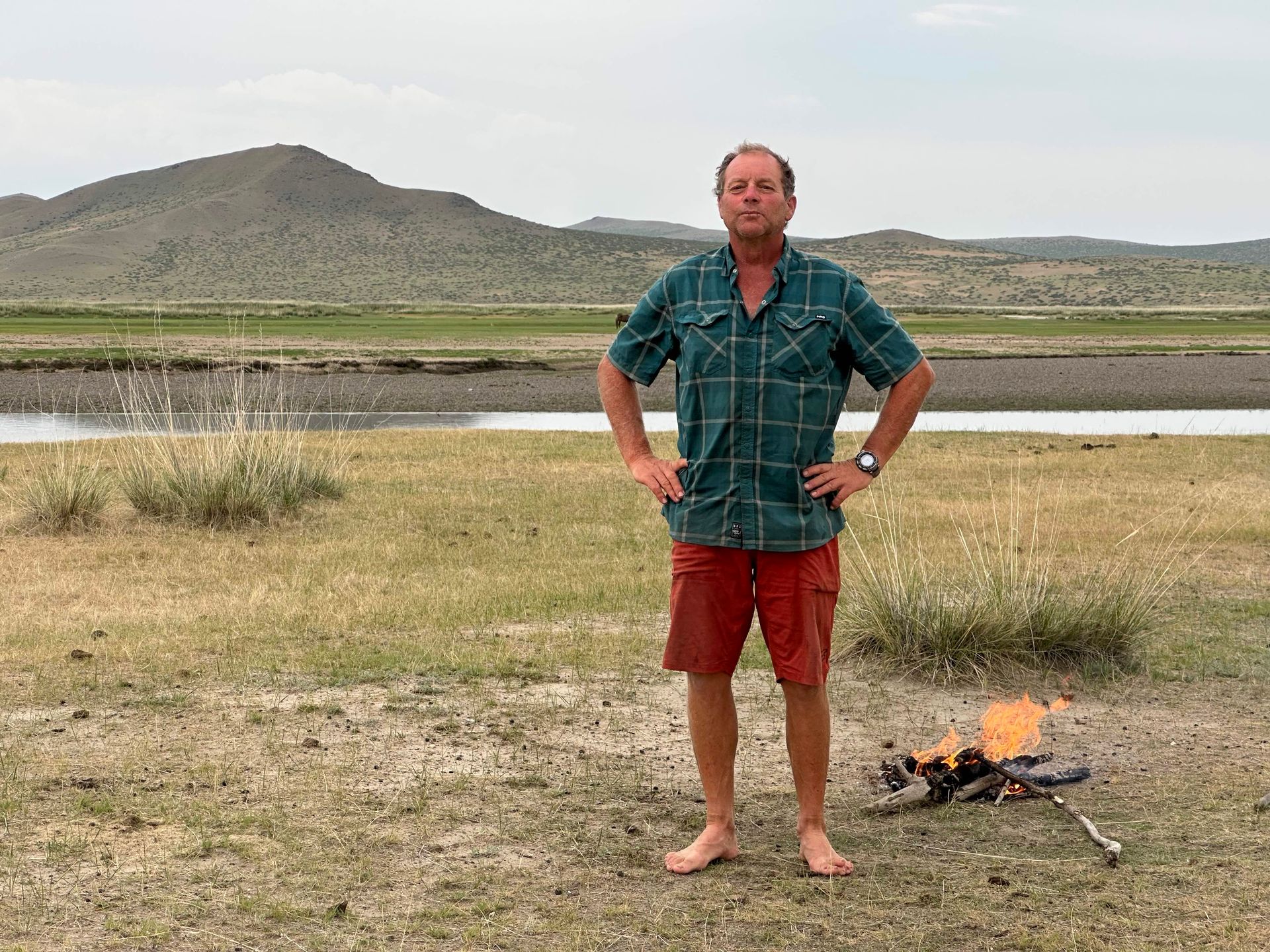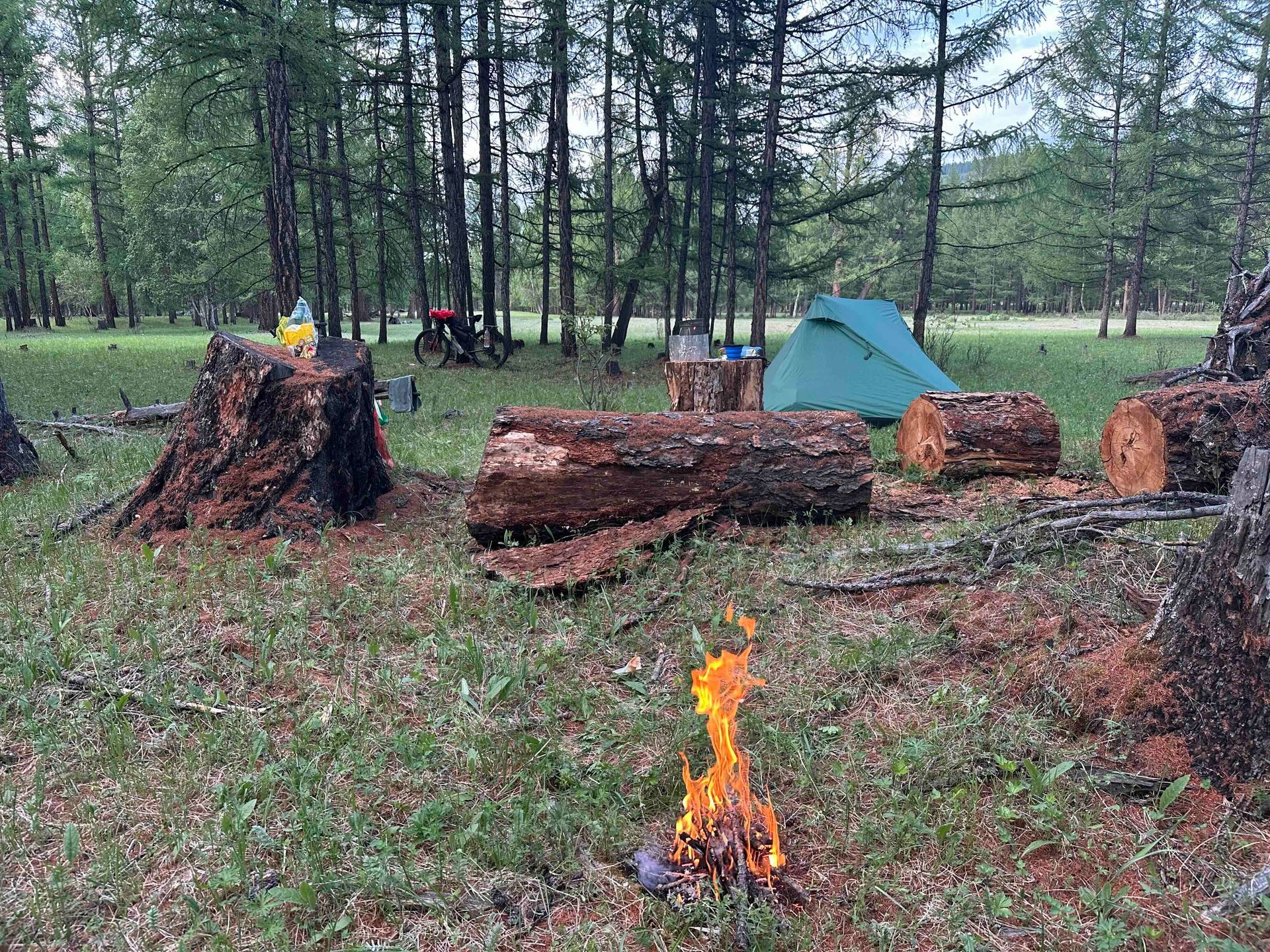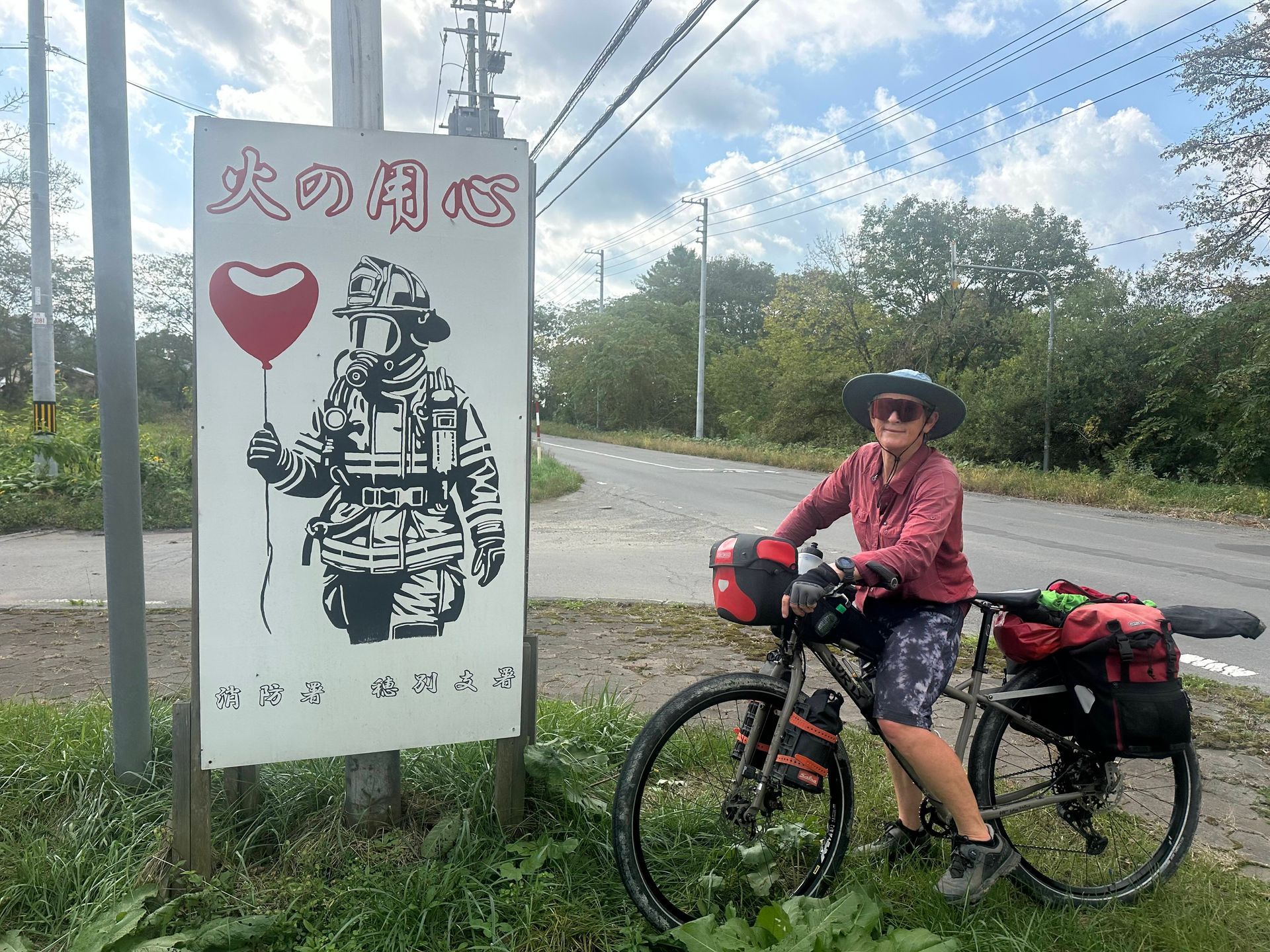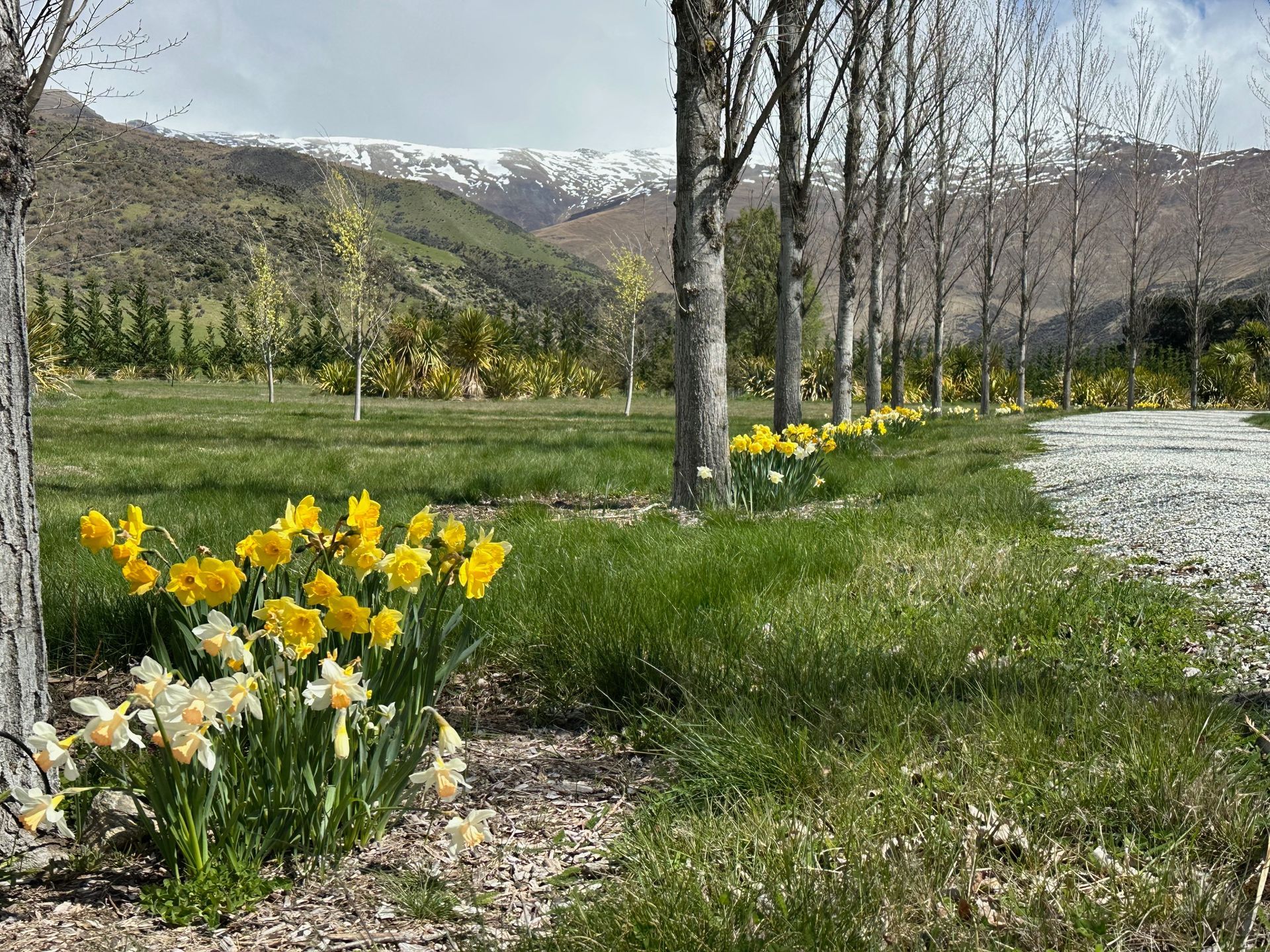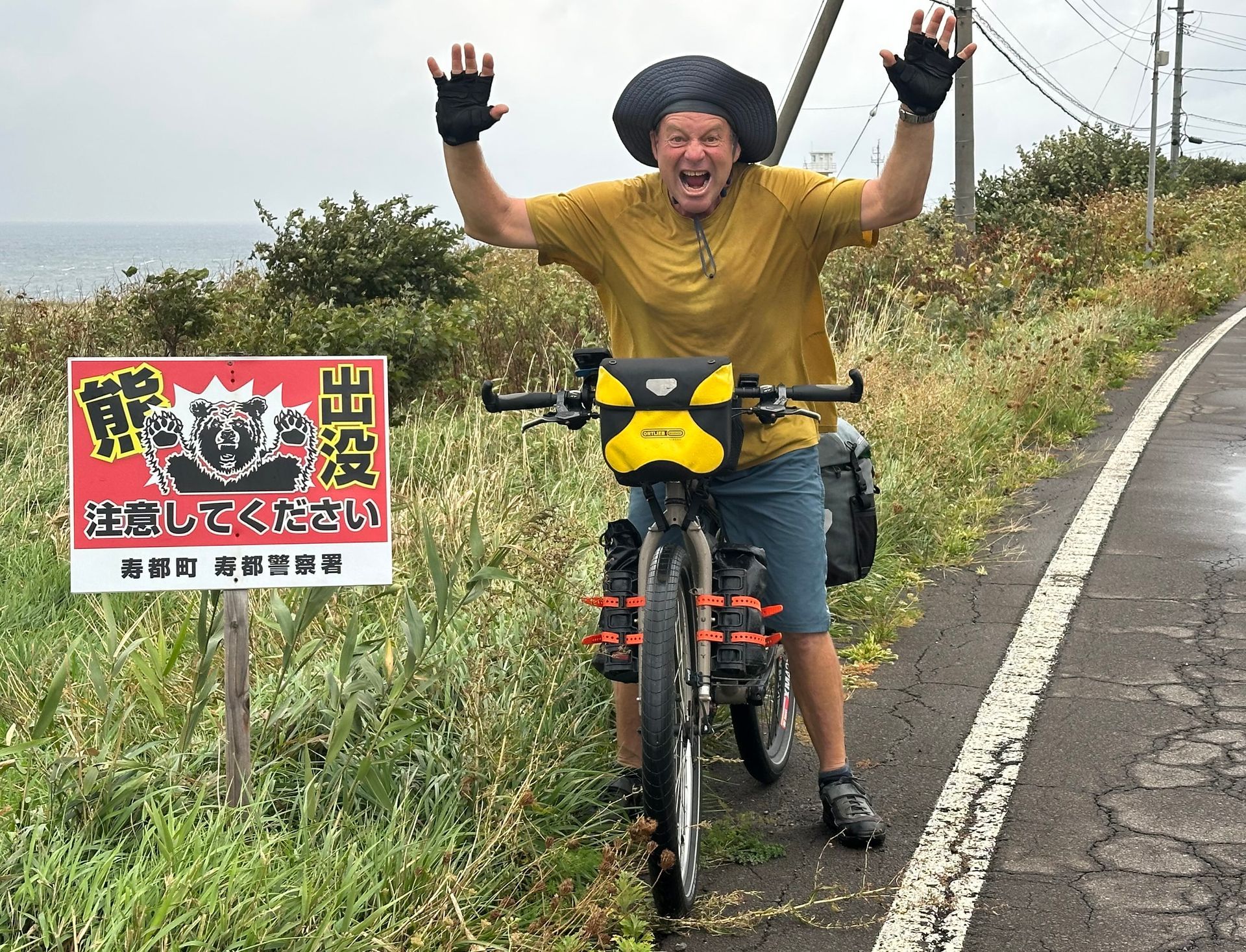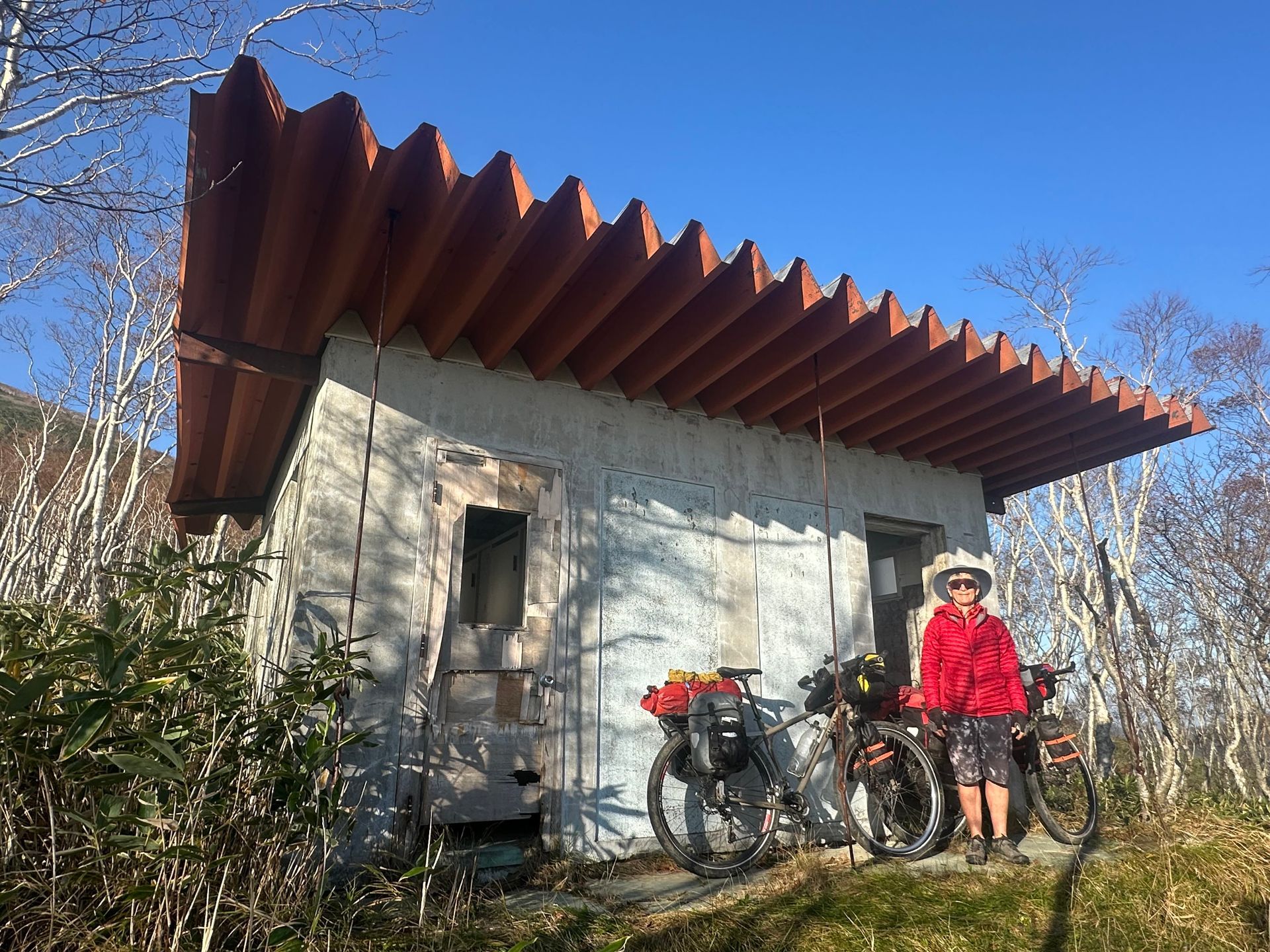Hope & Despair
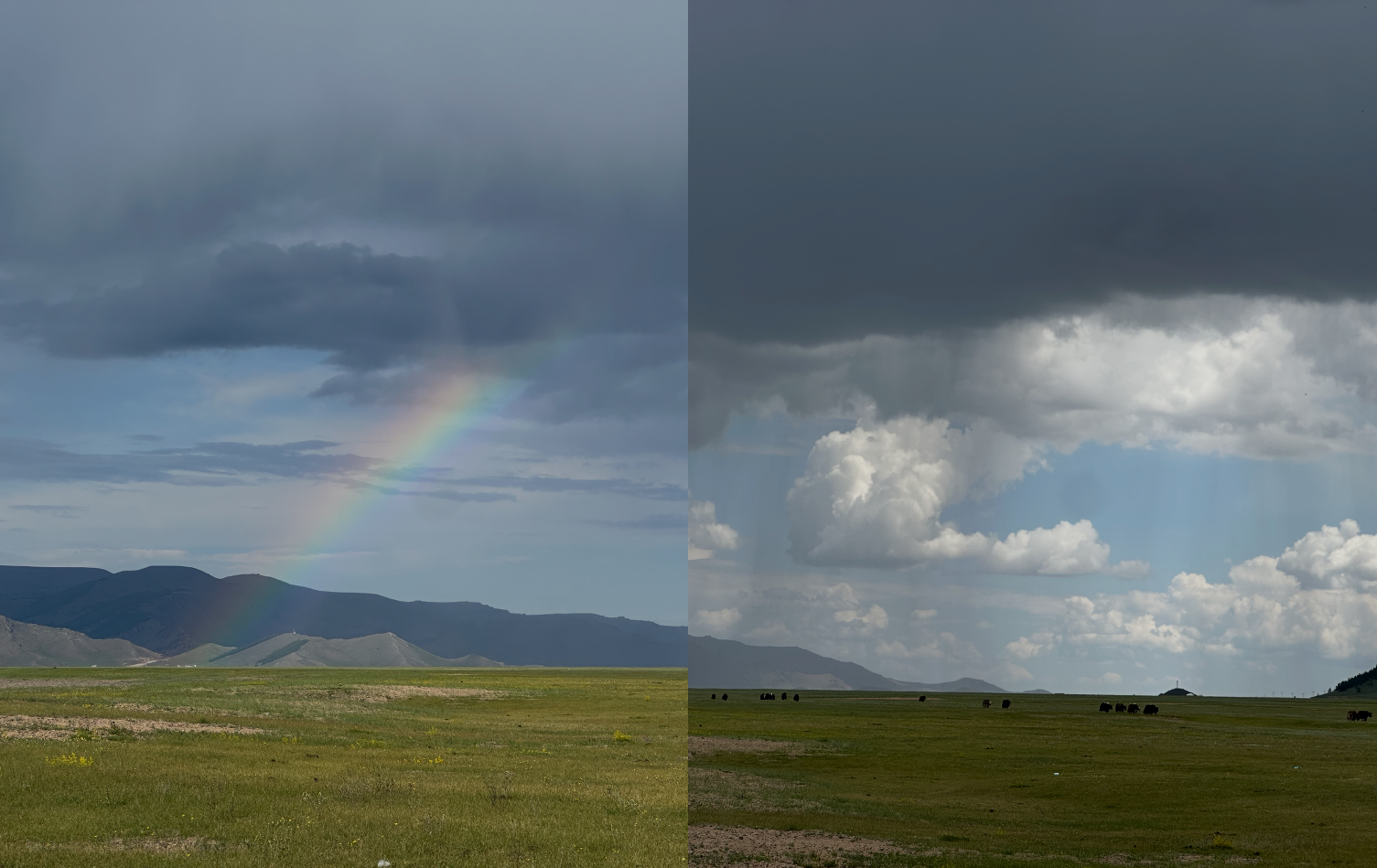
Changes in the weather beside Lake Terkhiin Tsagaan (White Lake)
Camping in Mongolia gave us lots of time and space. One of Chris's favourite recreational activities was lighting fires, so that's something we did regularly. We used the fires to burn the plastic rubbish that we found scattered most places in Mongolia. The shores of lakes were the worst places – where plastic waste got concentrated. Here's a picture of reflections in the lake after we did our local clean-up exercise. Picking up the plastic reminded me of collecting rubbish from under our primary school's macrocarpa hedge. We got a buzzy bee sticker for every rubbish bag we filled. The school's goal was to keep the grounds clean but we rapidly ran out of rubbish on the playing fields. My friend Edith wanted more stickers so first we crawled under the macrocarpa hedge and hauled out ancient rubbish tangled in the tree branches. Then we went further afield and cleared the next door property's ditch before the stickers ran out.
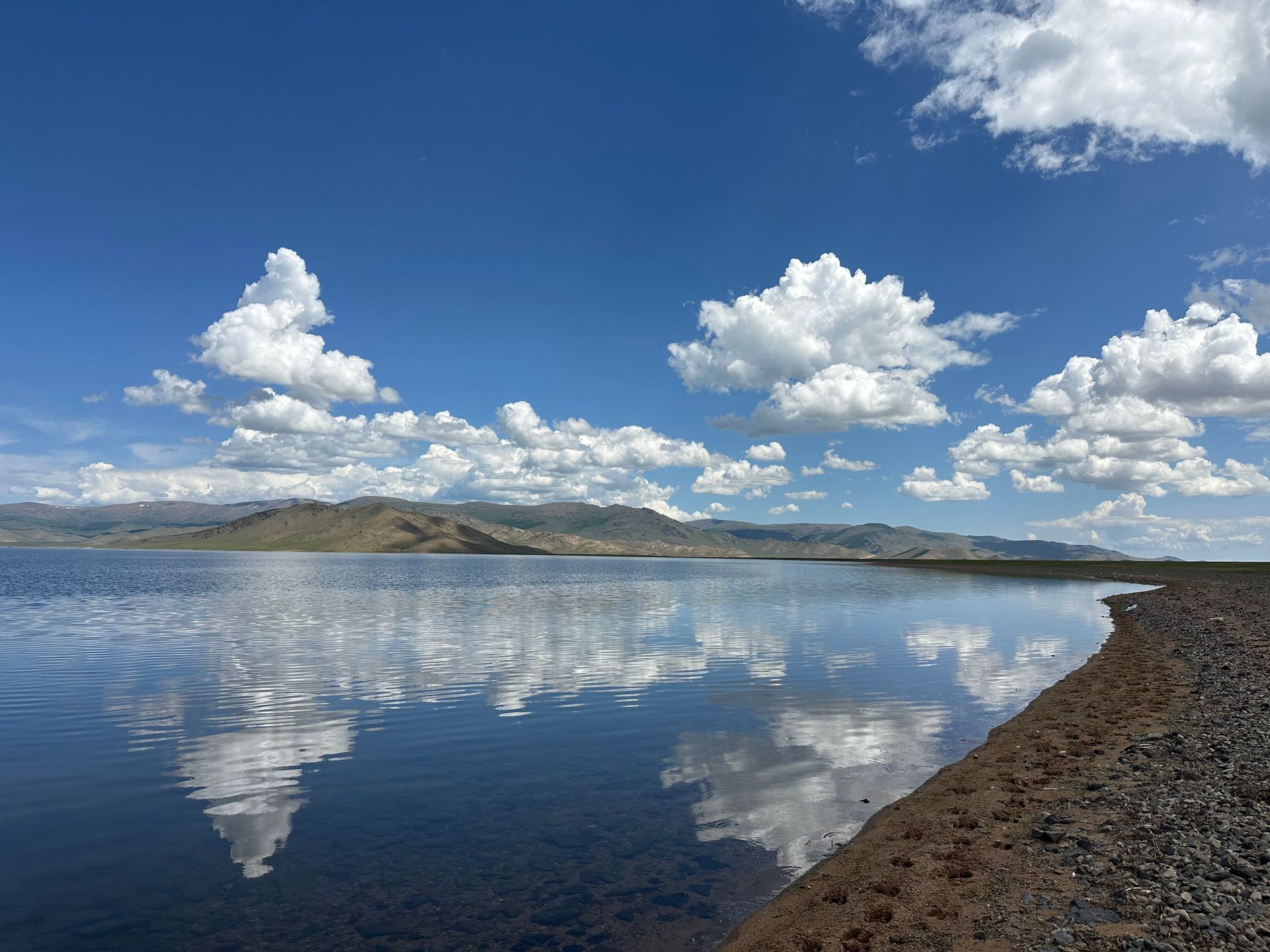
Clearing plastic waste feels like both hope and despair. There's the despair of the waste being close to infinite in extent – it's constantly being generated in every town, at every shop. Most goods are packaged in plastic and every item sold gets put in another plastic bags – I had my normal challenge of trying to prevent people giving me plastic bags, pointing at my pack. The most common plastic waste was water bottles (we treated our water to avoid buying bottles), beer bottles, plastic that holds aluminium cans together, and bags.
There's despair knowing all these plastics are shedding fragments as they degrade - microplastics and nanoplastics are becoming embedded throughout every environment. As we picked up bags, pieces of plastic too small to pick up fell into the gravel. What were we achieving? And we were only clearing a tiny area around our campsite while the majority of Mongolians appeared to be dropping plastic with no interest in collecting it.
The hope side of the equation was picking up plastic and burning it to visually clear a small patch of lake beach or steppe.
But...as we know and as pointed out by a German cycle tourist we met, burning plastic isn't a very environmentally-friendly action. Burning plastic releases pollutants into the atmosphere including dioxins, heavy metals, and greenhouse gases. Burning plastic leaves toxic residue on the ground. Back we went into despair...what can we do?
We could pick up the plastic and take it to a town. But we can't carry much plastic on a bike loaded with luggage, compared with all the plastic we cycled past. And what do people in Mongolian towns do with plastic? There's little rubbish collection in Mongolia, just like there's no reticulated water or sewage. No rubbish collection might work when all your waste is organic so can break down in the environment. But it doesn't work once the quantum of non-biodegradable waste escalates. So Mongolians either heap rubbish in large piles or, more commonly, burn it!
We grumbled that the German cycle tourist who disapproved of us burning plastic was buying water in bottles while knowing Mongolians burn the bottles the tourist carefully throws in rubbish bins. And maybe there's the nub of our problem...the underlying despair stems from knowing the damage we are doing but doing it anyway – us as well as the German. Because we are embedded in systems too overpowering to escape and too complex for us to change.
And where do we uncover underlying hope? My only answer is, through trying to act, however insoluble the problem and however flawed the solution. Though I do wonder if might still be a seven-year-old trying to amass buzzy bee stickers.
A selection of Mongolian campfires
